Recent Blog Posts
How Can Credit Counseling Help Me During Bankruptcy?
 Individuals who wish to file for bankruptcy are required to attend credit counseling. Credit counseling aims to help debtors understand their financial options before they file the bankruptcy petition with the court. Once a debtor has completed credit counseling, he or she must submit a certificate of completion to the court in order to continue with the bankruptcy process.
Individuals who wish to file for bankruptcy are required to attend credit counseling. Credit counseling aims to help debtors understand their financial options before they file the bankruptcy petition with the court. Once a debtor has completed credit counseling, he or she must submit a certificate of completion to the court in order to continue with the bankruptcy process.
Whether you intend to file for Chapter 7 or Chapter 13, credit counseling will be one of the prerequisites. In this article, we will discuss what to expect from credit counseling, how it can help you during bankruptcy, and how to contact a Texas bankruptcy attorney for more details and assistance with the process.
How Does Credit Counseling Work?
Credit counseling is a service offered by certified organizations, many of which are non-profit and approved by the U.S. Trustee Program. It involves an initial class that lasts around an hour to 90 minutes, during which the credit counselor will:
Is Chapter 7 Bankruptcy a Good Option for Small Business Owners?
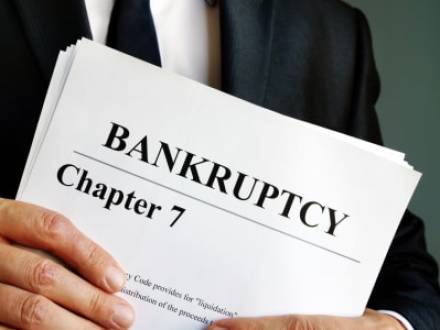 Small business owners are known to sometimes face significant financial challenges. Growing a profitable business can be an uphill battle, and some entrepreneurs find themselves overwhelmed with legal obligations. In more extreme situations, they might be drowning in debt and looking for a way out. For some such business owners, that way out is called Chapter 7 bankruptcy.
Small business owners are known to sometimes face significant financial challenges. Growing a profitable business can be an uphill battle, and some entrepreneurs find themselves overwhelmed with legal obligations. In more extreme situations, they might be drowning in debt and looking for a way out. For some such business owners, that way out is called Chapter 7 bankruptcy.
This article will discuss what Chapter 7 bankruptcy is and how it works for small business owners. If you are considering declaring bankruptcy, speak with a Texas bankruptcy attorney about your options.
What Is Chapter 7 Bankruptcy?
In Chapter 7 bankruptcy, the debtor’s assets are liquidated and then used to pay his or her creditors. The court appoints a trustee to oversee the process of converting the debtor’s assets to cash — usually by selling them — and then paying off claims by creditors.
How A Chapter 13 Bankruptcy Can Affect Your Life
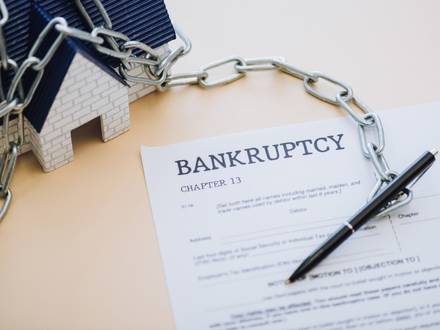 Chapter 13 bankruptcy allows you to get relief from your debt without having your assets liquidated. However, this type of bankruptcy does require you to keep making payments towards your debt for around three to five years. Your debts will be consolidated so that you will make a single monthly payment. This payment is meant to roughly equal your disposable income. If you are preparing to file for bankruptcy under Chapter 13, it is important to understand how it might affect you and your family, both during and after the repayment period. An experienced New Braunfels, TX bankruptcy attorney can explain how Chapter 13 bankruptcy works and how it might affect your life in the short and long term.
Chapter 13 bankruptcy allows you to get relief from your debt without having your assets liquidated. However, this type of bankruptcy does require you to keep making payments towards your debt for around three to five years. Your debts will be consolidated so that you will make a single monthly payment. This payment is meant to roughly equal your disposable income. If you are preparing to file for bankruptcy under Chapter 13, it is important to understand how it might affect you and your family, both during and after the repayment period. An experienced New Braunfels, TX bankruptcy attorney can explain how Chapter 13 bankruptcy works and how it might affect your life in the short and long term.
The Impact of Chapter 13 Bankruptcy
Many people file for Chapter 13 bankruptcy not because they want to, but because they cannot pass the means test to file under Chapter 13. A few effects of a Chapter 13 bankruptcy include:
What to Know About Bankruptcy, Medical Debt, and Disability
 Medical bills are an extremely common source of debt. However, if your medical problems have left you temporarily or permanently disabled, you may have taken on other types of debt. Many people who become too sick to work or must take a lot of time off due to an injury do not have the savings needed to cover their ordinary living expenses while they are not getting paid. This might mean that you had to use a credit card to pay for food and utilities or take out a loan to pay rent. Fortunately, these debts can normally be discharged during bankruptcy. If you are considering filing for bankruptcy to help with medical debt, you should speak to a well-qualified Kerrville, TX debt relief attorney.
Medical bills are an extremely common source of debt. However, if your medical problems have left you temporarily or permanently disabled, you may have taken on other types of debt. Many people who become too sick to work or must take a lot of time off due to an injury do not have the savings needed to cover their ordinary living expenses while they are not getting paid. This might mean that you had to use a credit card to pay for food and utilities or take out a loan to pay rent. Fortunately, these debts can normally be discharged during bankruptcy. If you are considering filing for bankruptcy to help with medical debt, you should speak to a well-qualified Kerrville, TX debt relief attorney.
Are Medical Bills Discharged in Bankruptcy?
Even if you have health insurance, medical debt can quickly become insurmountable. There is usually some aspect of your care that insurance will not cover. Perhaps you went to an in-network hospital, but one of the doctors who treated you there was out-of-network, and now you have been billed thousands for just one visit. For people dealing with a severe injury or long-term illness, these bills can add up until you reach a point where you realize you will never be able to pay it off.
Should I Give Some Things Away Before Filing for Bankruptcy?
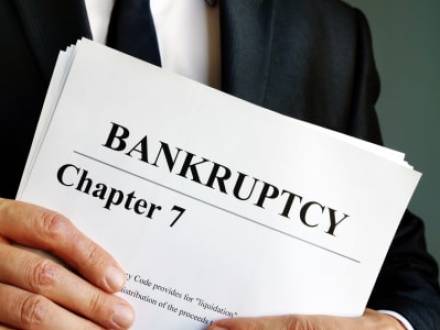 When you are planning to file for bankruptcy soon, it can be very tempting to give away assets you do not want to be liquidated. It may even have occurred to you that you could transfer a few things into a family member’s name on paper while continuing to use them yourself as a means of protecting them from being liquidated during Chapter 7 bankruptcy. This strategy is unlikely to work out as well as you had hoped. If you are found to have given away or retitled valuable assets shortly before filing for bankruptcy, the court is likely to find out and believe that you were acting in bad faith. A San Antonio, TX bankruptcy lawyer can help you protect as much of your property as possible through legal and legitimate means.
When you are planning to file for bankruptcy soon, it can be very tempting to give away assets you do not want to be liquidated. It may even have occurred to you that you could transfer a few things into a family member’s name on paper while continuing to use them yourself as a means of protecting them from being liquidated during Chapter 7 bankruptcy. This strategy is unlikely to work out as well as you had hoped. If you are found to have given away or retitled valuable assets shortly before filing for bankruptcy, the court is likely to find out and believe that you were acting in bad faith. A San Antonio, TX bankruptcy lawyer can help you protect as much of your property as possible through legal and legitimate means.
Gifts Made in Bad Faith Before Bankruptcy
Bankruptcy courts often become very suspicious when a person transfers valuable property to another person shortly before filing for liquidation bankruptcy. Making substantial gifts of your own personal property - or worse, real property - just before starting the bankruptcy process tends to make it look like you are not submitting to the liquidation process in good faith. For example, if you abruptly transfer your vacation home or your "fun" car to your adult child a few weeks before filing, it is quite clear that you are likely to continue using these items and the title transfer was only done to avoid liquidation.
Will Bankruptcy Stop Wage Garnishment?
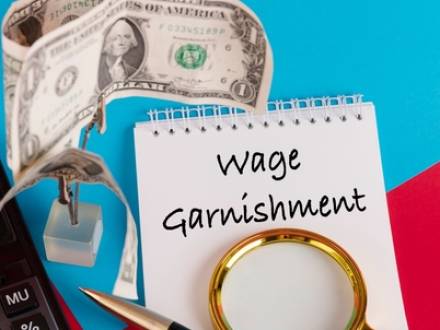 Having your wages garnished can be frustrating, but there may be a way to stop it. No sooner does your pay post to your bank account than a portion of it disappears to pay off a past debt. This can leave you in a difficult financial position as well. Once your creditor gets its share, you might not have enough left to cover all of your expenses, especially when you are dealing with an unplanned expense like a car repair or a medical bill. Sometimes it is the impossibility of dealing with wage garnishment that prompts people to start looking into bankruptcy. A Bexar County, TX bankruptcy lawyer can help determine whether filing for bankruptcy would stop your wages from being taken.
Having your wages garnished can be frustrating, but there may be a way to stop it. No sooner does your pay post to your bank account than a portion of it disappears to pay off a past debt. This can leave you in a difficult financial position as well. Once your creditor gets its share, you might not have enough left to cover all of your expenses, especially when you are dealing with an unplanned expense like a car repair or a medical bill. Sometimes it is the impossibility of dealing with wage garnishment that prompts people to start looking into bankruptcy. A Bexar County, TX bankruptcy lawyer can help determine whether filing for bankruptcy would stop your wages from being taken.
True Wage Garnishment vs. Asset Seizure
Wage garnishment is when a portion of your paycheck is taken before the funds ever reach you. Your employer would be involved in this process, as the company you work for could not release the full amount of your wages to you directly. If your paycheck is hitting your bank account before a portion of it disappears, this is actually a form of asset seizure rather than true wage garnishment. In Texas, your wages can only be garnished for a few very specific types of debt.
What Is a No-Asset Bankruptcy in Texas?
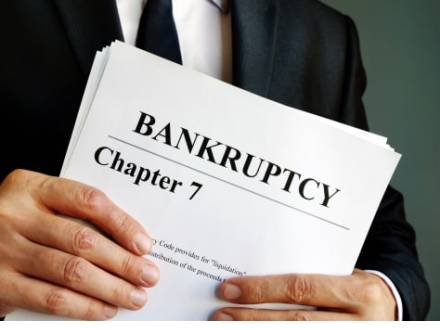 Chapter 7 bankruptcy normally involves having your assets liquidated to pay off as much of your debt as possible before the rest of your debt is cleared, whether or not you owned enough property to satisfy your debts. The advantage of Chapter 7 bankruptcy is that after liquidation, you do not owe anything else. Some assets are exempt from liquidation, and you can keep them despite the bankruptcy. So, what happens if every asset you own is exempt from liquidation? This is called a no-asset bankruptcy. Generally, this means that nothing is liquidated, and your debts can still be cleared. A San Antonio, TX bankruptcy attorney can help you protect your assets during bankruptcy.
Chapter 7 bankruptcy normally involves having your assets liquidated to pay off as much of your debt as possible before the rest of your debt is cleared, whether or not you owned enough property to satisfy your debts. The advantage of Chapter 7 bankruptcy is that after liquidation, you do not owe anything else. Some assets are exempt from liquidation, and you can keep them despite the bankruptcy. So, what happens if every asset you own is exempt from liquidation? This is called a no-asset bankruptcy. Generally, this means that nothing is liquidated, and your debts can still be cleared. A San Antonio, TX bankruptcy attorney can help you protect your assets during bankruptcy.
Why No-Asset Bankruptcy Is So Common
Most people who are considering filing for Chapter 7 bankruptcy are struggling financially, often due to having lost a job or becoming ill and acquiring massive amounts of medical debt. Many individuals and families in this position have already depleted their savings, and some have even sold anything of value they own and do not truly need in order to stay afloat. This is especially true if you have not worked in quite some time and have dependents. Others, especially those who are young or who have been disabled for most of their adult life, have never owned assets beyond what would be considered exempt.
5 Tips for Staying Out of Debt After Bankruptcy
 Going through bankruptcy can be a fresh start, but staying out of debt afterward is important for avoiding the cycle of debt in the future. While bankruptcy can help erase overwhelming debts, it is important to develop good habits to avoid falling back into the same financial struggles. If you are in San Antonio and have questions about filing for bankruptcy, contact an attorney and then check out these five tips to help you stay out of debt.
Going through bankruptcy can be a fresh start, but staying out of debt afterward is important for avoiding the cycle of debt in the future. While bankruptcy can help erase overwhelming debts, it is important to develop good habits to avoid falling back into the same financial struggles. If you are in San Antonio and have questions about filing for bankruptcy, contact an attorney and then check out these five tips to help you stay out of debt.
Create a Realistic Budget
One of the most important steps to take after bankruptcy is to create a budget that includes your income and expenses. Write down all your sources of income and then list out what you always spend your money on, like rent, utilities, food, and transportation. Be sure to include savings as a priority in your budget, even if you can only start small.
If you are unsure how much money you spend, keep a record. Write down every time you spend money, even on a coffee, so you know exactly where your money goes. Many people are surprised by how much they spend when they start keeping track. Once you know where every penny is going, you can make adjustments as necessary.
Do I Have to Tell People if I File for Bankruptcy?
 Filing for bankruptcy can be one of the most challenging decisions you ever make. It often comes after months or even years of financial stress, and the thought of others finding out can add to that burden. You may worry about your privacy and what people will think. At the Law Offices of Chance M. McGhee, we understand how personal and sensitive this decision is. Our San Antonio bankruptcy attorney offers discreet, compassionate support to help clients through this process without judgment.
Filing for bankruptcy can be one of the most challenging decisions you ever make. It often comes after months or even years of financial stress, and the thought of others finding out can add to that burden. You may worry about your privacy and what people will think. At the Law Offices of Chance M. McGhee, we understand how personal and sensitive this decision is. Our San Antonio bankruptcy attorney offers discreet, compassionate support to help clients through this process without judgment.
Can People Find Out if I File for Bankruptcy?
Yes, it is possible for people to find out if you file for bankruptcy, but it is unlikely that most people will. Bankruptcy filings are a matter of public record, which means they are technically accessible to anyone. However, the information is not widely publicized, so most people in your life — such as friends, family, or coworkers — are unlikely to find out unless you tell them. While employers or landlords may find out about your bankruptcy during credit checks, it is not typically broadcasted information.
What Are Some Alternatives to Bankruptcy?
 Financial distress can make you feel like you are drowning in debt with no way out. While bankruptcy might seem like the only solution, it is not always the best or only option available. A Texas lawyer can guide you through several alternatives to bankruptcy and help you understand when filing for bankruptcy might be the right choice.
Financial distress can make you feel like you are drowning in debt with no way out. While bankruptcy might seem like the only solution, it is not always the best or only option available. A Texas lawyer can guide you through several alternatives to bankruptcy and help you understand when filing for bankruptcy might be the right choice.
Alternatives to Bankruptcy
Before considering bankruptcy, explore these potential alternatives:
Debt Consolidation
This process involves combining multiple debts into one loan, typically with a decreased interest rate if you qualify. Consolidating can make your debt more manageable and potentially save money on interest.
Debt Settlement
In this process, you or a representative negotiate with creditors to pay less than what you owe. While this can reduce your debt, it may negatively impact your credit score.






